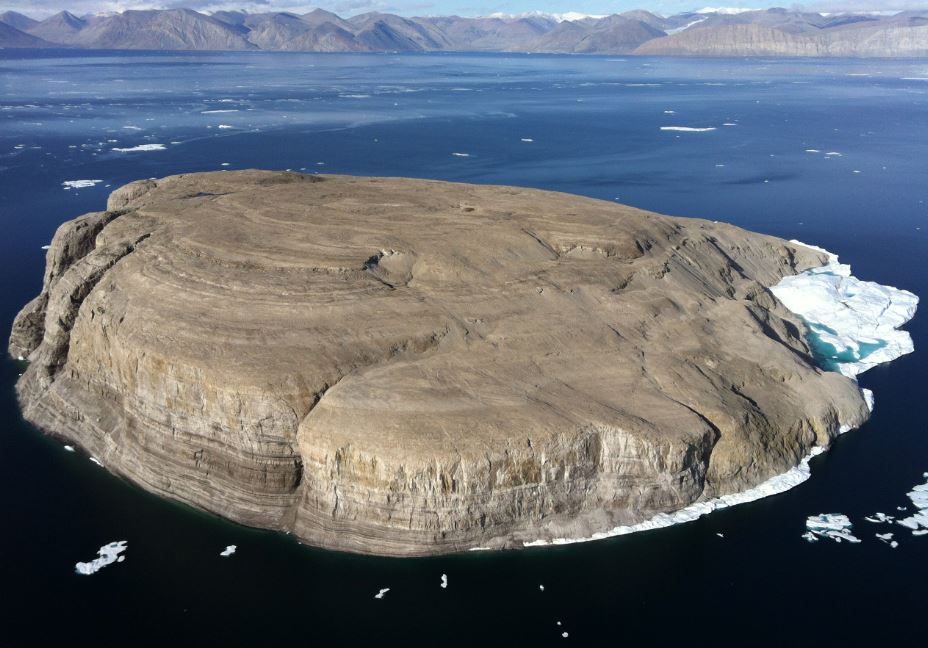In the Arctic, there is a rock formation that looks like a kidney and is known as Hans Island. However, since it is located directly in the middle of the international boundary that separates Canada and Greenland, an autonomous territory of Denmark, it has been the subject of a rare territorial dispute with Canada for the past 49 years. This is because Greenland is an autonomous territory of Denmark.
Over the course of many decades, Canada and Denmark have battled their issue in a variety of methods, many of which have been somewhat frivolous.
Since Canadian troops first started visiting the island in 1984 to plant maple leaf flags and leave behind bottles of Canadian whisky, Danes have been making regular visits to the island to replace the Canadian items with schnapps and Danish flags. The first visit by Canadian troops took place in 1984. And cabinet members from both countries have come by helicopter to affirm their nations’ rival claims and examine the rock they claimed to control. Both countries have laid claim to the island.
The mystery of who owns Hans Island was finally put to rest on Tuesday when Canada and Denmark inked an agreement that legally established their maritime border in the Arctic and settled the ownership dispute over Hans Island. The island is going to be divided, with about sixty percent of it going to Denmark and the other forty percent going to Canada.
The country’s two foreign ministers drew a comparison between the violent and turbulent conclusion of past territorial battles, most notably Russia’s invasion of Ukraine, and the calm and effective resolution of the issue, which took some time but was ultimately fruitful.
The dispute between Denmark and Canada over Hans Island goes back to 1973, when the two countries finished holding negotiations concerning boundaries and undersea rights but were unable to come to an agreement over Hans Island.
Hans Island, which is located in the middle of the Nares Strait, which is 22 miles wide and divides the two nations, is home to oil and gas deposits. However, Michael Byers, a professor of international law at the University of British Columbia who specialises in the study of Arctic sovereignty, said that it is unlikely that offshore drilling would take place since the resources are too deep and the region is too crowded with icebergs.
According to Professor Byers, “The price of the oil would go over the roof.” In ten, twenty, or thirty years, if we are still drilling for oil at those depths and in that position, we will have already conceded the battle against climate change.
However, Ms. Joly stated that the newly settled marine boundary between Canada and Denmark, which she described as the longest in the world, will serve as an important example to other nations as they deal with questions concerning the Arctic seabed and the resources it contains. This was said to be the case because Ms. Joly stated that the boundary was the longest in the world.
According to the ministers, in order to come to an agreement, both nations needed to have discussions with Inuit people who reside on both sides of the border and who refer to the island as Tartupaluk. According to Mr. Kofod, the agreement safeguards their rights to hunt and fish across international borders, and it also assures that the new boundary will not impede movement across Hans Island.
Professor Byers believes that a portion of the reason lies in the sluggish speed at which the United Nations procedures for addressing maritime boundary conflicts that are controlled by the Law of the Sea Treaty of 1982.
However, he also pointed out that highly publicised drop offs of booze by soldiers from both nations have often preceded elections, which suggests that some administrations saw political advantage in dragging out the disagreement for longer than necessary.
As a result of the accord, the whisky war will come to an end. On Tuesday, the two ministers engaged in their last bottle trade with one another.

